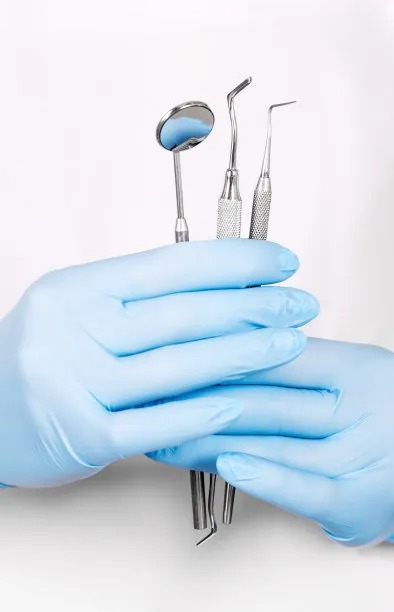Summary: Before undergoing a dental filling procedure, it is crucial to be aware of several essential precautions to ensure optimal oral health outcomes. This article outlines four critical aspects to consider: understanding the type of filling material, preparing for the procedure, ensuring proper aftercare, and choosing a qualified dental professional. Each of these areas significantly impacts the success of the filling and the overall health of your teeth. Awareness and adequate preparation can help minimize risk and enhance the effectiveness of the treatment, contributing to long-lasting oral health.
1. Understanding Different Filling Materials

When preparing for a dental filling procedure, it is essential to understand the various types of filling materials available. Common materials include amalgam, composite resin, gold, and porcelain. Each material has its pros and cons, which can affect durability, aesthetic appeal, and cost.
Amalgam fillings are known for their strength and longevity, making them suitable for back teeth where chewing force is greatest. However, they are not as aesthetically pleasing due to their silver color. Composite resins, on the other hand, can be color-matched to the natural shade of your teeth, making them a popular choice for front teeth.
Additionally, gold and porcelain fillings offer excellent durability and aesthetics but can be more expensive. Engaging with your dentist about the optimum filling material for your specific needs is vital for ensuring a successful procedure and maintaining oral health.
2. Preparing for the Dental Procedure
Effective preparation is crucial for a smooth dental filling procedure. First and foremost, it is advisable to schedule a consultation with your dentist to discuss your dental health history and any concerns you may have. This dialogue will help your dentist tailor the procedure to your unique needs.
Medications can also play a significant role in preparation. Inform your dentist of any medications you are currently taking, including over-the-counter drugs and supplements. Certain medications may affect bleeding tendencies or healing processes.
Finally, ensuring good oral hygiene in the days leading up to the procedure can positively impact the outcome. Brush and floss regularly, and consider using an antiseptic mouthwash to reduce bacterial load, minimizing the risk of infection during and after the filling process.
3. Importance of Aftercare for Fillings
Aftercare following a dental filling is just as important as preparation. Understanding how to care for your filling will significantly affect its longevity. For instance, it’s essential to avoid consuming hard or sticky foods for at least 24 hours after the procedure to allow the filling to set appropriately.
Maintaining regular oral hygiene post-procedure is also crucial. Brush gently around the filled tooth to avoid irritation but ensure you continue to brush twice a day and floss daily. This not only keeps the filled area clean but also prevents decay from occurring around the filling.
Additionally, be aware of any sensitivity following the filling. It is common to experience some sensitivity to temperature changes. However, if this sensitivity escalates or persists beyond a couple of weeks, contacting your dentist is advisable to ensure there are no complications.
4. Choosing a Qualified Dental Professional
Selecting a qualified dental professional can profoundly impact the success of your dental filling procedure. Begin by researching dental professionals in your area, checking for qualifications and reviews from previous patients. An experienced dentist will be knowledgeable about the various filling materials and the techniques needed for a successful placement.
It is beneficial to seek recommendations from friends or family who have had similar procedures. A dentist who has a reputation for both skill and patient care will give you peace of mind going into the procedure.
Finally, consider scheduling a consultation to determine whether you feel comfortable with the dental team. A good rapport with your dentist can alleviate anxiety and lead to better preparedness for your filling procedure.
Summary:
In conclusion, understanding the different filling materials available, preparing thoroughly for the procedure, engaging in diligent aftercare, and choosing a qualified dental professional are essential precautions that contribute to effective dental fillings. These steps will pave the way for optimal oral health outcomes and lasting satisfaction with your dental care.
This article is compiled by Vickong Dental and the content is for reference only.
Vickong Dental
Vickong Dental is a large medical group established in Hong Kong in 2008 by professors from well-known medical universities in Guangdong and Hong Kong, as well as medical doctors from key national '985' universities (including Master's supervisors and senior professors). The chain of branches brings together expert dentists with PhDs and Master's degrees from Hong Kong and Mainland China, committed to providing high-quality dental treatment.
"Vickong Dental Practices the University Motto of 'Healing and Serving Society,' with a Stable Operation for Sixteen Years. It Has Been honored with Hong Kong Enterprise Leaders's Choice,' and is a Global Trusted Implant Center for the Nobel Implant System. Recommended by Hong Kong Metro Broadcast and Guangdong Television, it Serves Customers from Over Thirty Countries and Regions, Gaining the Trust and Favor of Citizens from the Guangdong-Hong Kong-Macau Greater Bay Area and Surrounding Cities.

Thousands of customers' unanimous praise
The most recognized and highly recommended dental service by customers in the Guangdong-Hong Kong-Macau Greater Bay Area
We Ensure You Receive Detailed Care and Attention Here
Hong Kong standards, Shenzhen prices, Your Trusted English-speaking dentists

Vickong Dental Medical-Grade Instrument Disinfection Process
Vickong Dental Medical-Grade Instrument Disinfection Process

Vickong Dental Chain: A Warm and Comfortable Environment for Treatment






Appointment Hours

Q&A
Why choose Vickong Dental?
Vickong Dental practices the university motto 「Medicine to Benefit Society」, with each branch bringing together highly qualified dentists with doctoral and master’s degrees from Hong Kong and the Mainland, and has maintained seventeen years of steady operation。Recipient of 「2024 Hong Kong Enterprise Leaders Brand」, 「2025 Hong Kong Enterprise Leaders Brand」, a Nobel Biocare Global Trusted Implant Center, and a brand recommended by Metro Radio Hong Kong and Guangdong TV。
To date, we have served customers from more than thirty countries and regions,earning exceptionally high word-of-mouth recognition and trusted recommendations from residents across the Guangdong-Hong Kong-Macao Greater Bay Area and surrounding cities
We have eight major branches in Zhuhai、Shenzhen,and a consultation and service assurance center in Hong Kong,so you can book a free consultation at any time for any questions,which is very reassuring.
If I do not accept the quotation after the CT scan, will I be charged??
No! As long as the actual treatment has not started, you will not be charged any fees.
Will there be any additional charges during the treatment process?
No, there won’t be any additional charges. Before treatment begins, we will clearly explain the treatment plan and its corresponding fees. Only after the patient agrees and signs the consent form will we proceed with the dental service.
Can I pay in Hong Kong dollars?
Yes. Vickong Dental accepts payment in Hong Kong dollars. The amount will be converted based on the exchange rate of the day, and the applicable rate will be clearly communicated to you in advance.
Can I reschedule my appointment at any time?
Yes. Please contact us via **WeChat** or **WhatsApp** as early as possible, providing your original appointment time and details, along with your preferred new date and time slot for rescheduling.













